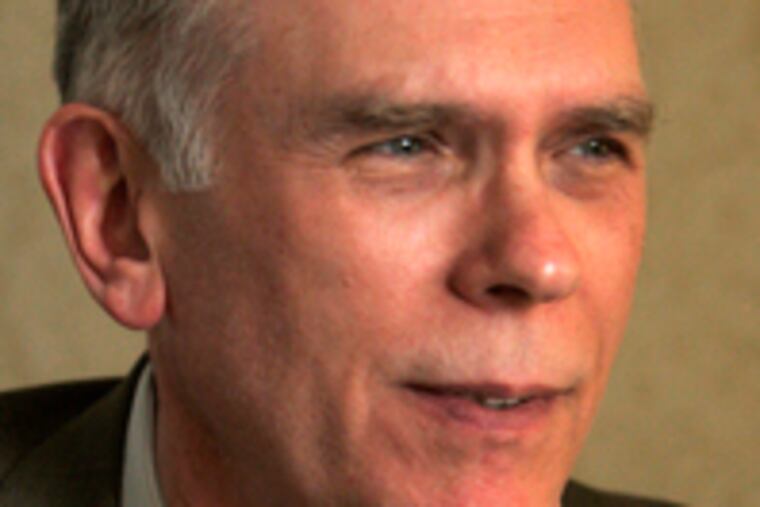A measured search for Philadelphia Orchestra music director
SARATOGA SPRINGS, N.Y. - The Christoph Eschenbach era ends with the 2007-08 season, and the Philadelphia Orchestra's process for finding its eighth music director is slowly coming into view.

SARATOGA SPRINGS, N.Y. - The Christoph Eschenbach era ends with the 2007-08 season, and the Philadelphia Orchestra's process for finding its eighth music director is slowly coming into view.
A search committee will be in place by the time of the orchestra's annual meeting in September. The committee, whose work may take several years, will make its recommendation to the orchestra board, which will authorize the orchestra's president to negotiate a contract with the new leader.
In an interview here at the orchestra's summer home in New York, orchestra president James Undercofler said a decision was not possible before the end of the coming season, and was "very unlikely" before the end of 2008-09.
"We're not going to make any snap decisions," Undercofler said Wednesday, backstage at the Saratoga Performing Arts Center as Charles Dutoit led a rehearsal of Beethoven's Symphony No. 9. "We're going to have a period of dating, courtship and then marriage."
Of course, said Eric Carlson, trombonist and chairman of the members' committee, "we could be pleasantly surprised" by an early-arriving candidate the orchestra loves so much it pounces before said candidate can get away. "But we'd like to be sure."
The universe of possibilities, both said, is wide open.
"There is no preselected candidate here. It could be someone we haven't seen or someone we haven't seen in a long time," Undercofler said.
In the meantime, the orchestra and Eschenbach are discussing a possible title for him once he is no longer music director. Wolfgang Sawallisch took the title "laureate" after he stepped down. What would Eschenbach's be? "We've discussed various possibilities," said Undercofler.
Eschenbach's five-year tenure will match that of Carl Pohlig (1907-1912) as the shortest in the orchestra's history, and because conductors' schedules are booked several years in advance, the orchestra would seem to be short on time. But it has taken some important steps even before the search committee begins its work. The orchestra has engaged a sure hand in Dutoit, who will have the unusual title of chief conductor for four years, starting in 2008-09, as the search continues.
And, perhaps in reaction to the way the last search was led, Undercofler says he and musicians have worked out a system in which every single musician of the orchestra will have an opportunity to be involved in the process.
The orchestra will name a large working committee with perhaps 10 members. Half will be selected to ensure equal representation from the strings, brass, woodwinds and percussion; the other half will be elected at large. This body will be responsible for collecting responses to guest conductors by holding meetings with small groups of musicians, perhaps eight to 10 at a time.
There will be no general meetings of the entire ensemble to discuss candidates, Carlson said.
"Some people are not comfortable speaking in a larger group," he said.
From the working group, a smaller group will report to the search committee.
Musicians are already being polled on conductors the orchestra has seen in the last five years. Audience reaction, too, will be considered, though the mechanism for gauging such opinions has not been determined, Undercofler said. After all, it has somehow become tradition for audiences to give standing ovations and cheers every single night. How would an exceptional reaction be detected?
And then there is the question of precisely what job the orchestra is looking to fill. It might seem obvious, but the post of music director is evolving. The Pittsburgh Symphony Orchestra tried splitting the podium among three conductors, although it has since named a single music director. The New York Philharmonic recently named relative youngster Alan Gilbert, 40, its music director, but also announced that the older - just turned 66 - and presumably wiser Riccardo Muti had agreed to multiweek appearances.
On this question of what the job is, Undercofler will only say: "That discussion will take place."
The orchestra's president, who last week passed the one-year mark in his own job, appears painfully reluctant to express too many opinions. He and many others in the organization seem determined to avoid imposing a choice on the ensemble. "The whole process will be characterized by us all moving forward at the same time," he says.
"My opinion tends to carry a certain amount of weight. I'd like it to be blended into the group."
.